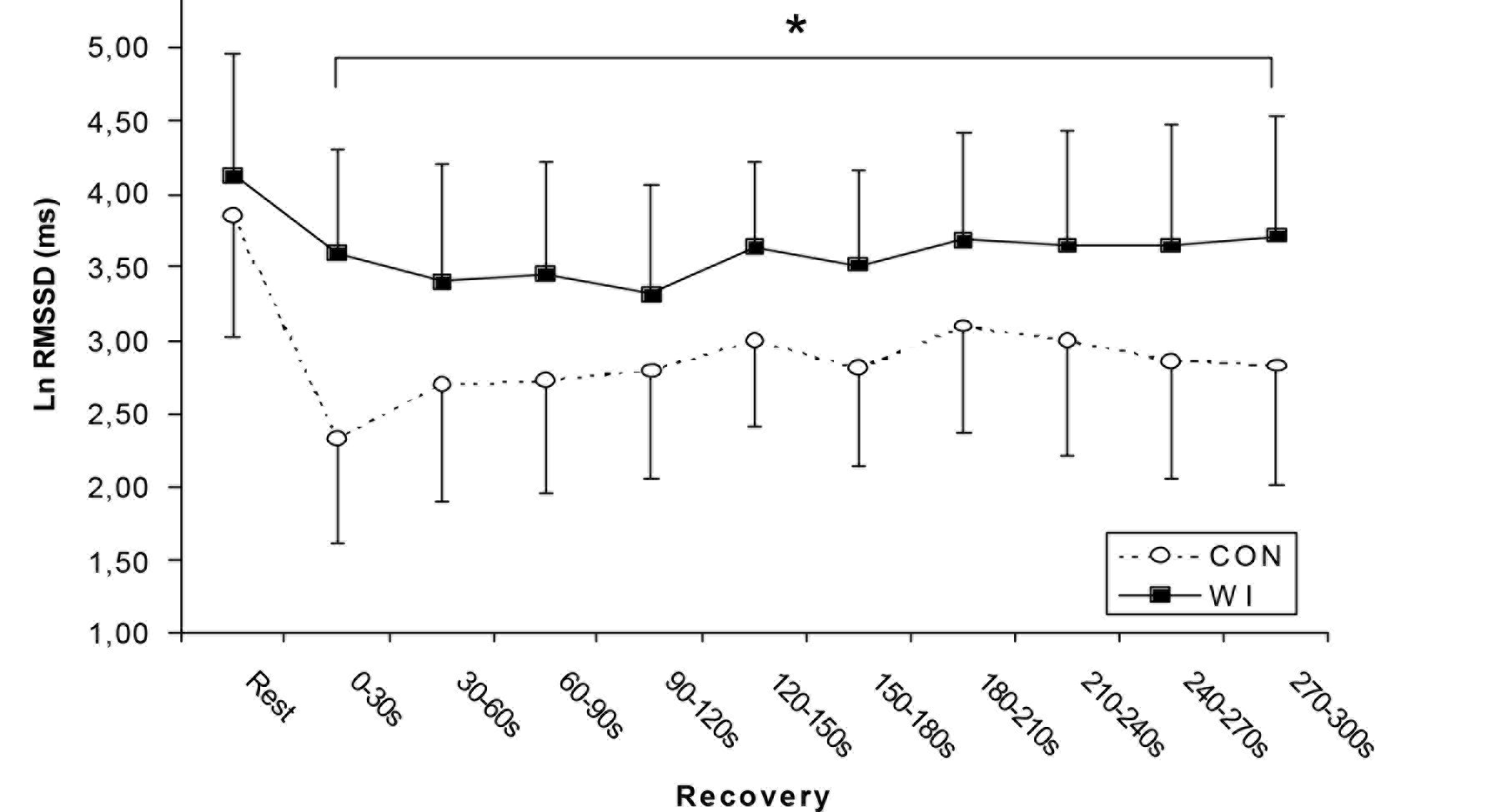HRV, Exercise, and Hydration
To stay healthy, it’s important to replace the fluid we lose when we exercise, breathe, sweat or urinate. However, studies show that two-thirds of Americans do not drink enough water. With this in mind, how many of us realise the impact of adequate hydration on our recovery after exercise?
Hydration and Heart Rate Variability
The chart below was taken from a study on water intake and heart rate variability (HRV) after exercise (de Oliveira et al, 2011). It shows the positive influence water intake has on recovery HRV post exercise in comparison with a controlled group who did not hydrate after exercise. Water intake immediately after exercise will also significantly reduce the chances of post-exercise cardiovascular events. These risks however are elevated if water is not consumed immediately after exercise.

Hydration and Sport
A high rate of fluid consumption during the first two hours of post-exercise rehydration does not only positively affect your HRV but is known to increase plasma volume significantly and decrease the risks of nausea and headaches. Additionally, athletes looking to achieve rapid and complete recovery from dehydration should drink 1.5L of fluid for each kilogram of body weight loss (Sawka & Burke, 2007).
At the other end of the scale, dehydration can negatively impact cognitive functions, physical performance, your immune system, body temperature and cardiac output. It’s clear that after a hard workout or event that it’s important to make sure that you have properly re-hydrated and in turn not only will your HRV improve but you will be ready for your next work out!
Whether you regularly exercise or not, the European Food Safety Authority recommends that women should drink about 1.6 litres of fluid and men should drink about 2.0 litres of fluid per day. That’s about eight glasses of 200ml each for a woman, and 10 glasses of 200ml each for a man.

“The 20-min exercise period was performed at a comfortable pace on an eletromagnetically-brakedcycle ergometer loaded with 75 Watts for women and 100 Watts for men. ”
Quite low intensity exercise, would be interesting to compare to higher power outputs where one would think the need for rehydration would be even greater
Table 1. Comparison of the rest HRV between the
water intake (WI) and control (CON) conditions.
WI CON
SDNN (ms) 71.0±33.5 61.1± 5.6 ns
Low sample size of 10 noted and note the large variance in the water intake group the ±33.5 figure indicate not everyone responded the same. Low sample sizes are prone to a type one error, detecting a statistical difference when one truly doesn’t exist
I’m not saying rehydration isn’t important, intuitively most would agree it is , but we need to base these assumptions on solid science
Hi Chris,
All noted and we’d certainly agree further research is always a good thing. Do you know of any other studies we should be taking a look at to compliment this?
Thanks,
Laura
HI Laura
Not at this stage, will keep my eyes peeled, but I think the onus is on ithlete to perform due diligence and review the quality of research concerning HRV before promoting it on the blog
All Good
Cheers Chris